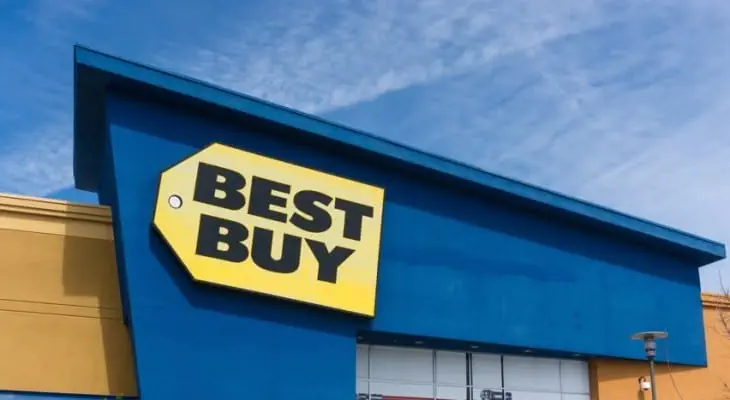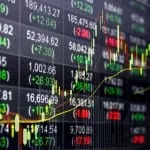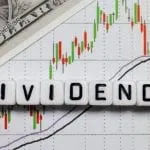Best Buy Boosts Quarterly Dividend Payout 11% (BBY)
By: Ned Piplovic,

In the wake of a stellar financial results report for the last quarter of its fiscal year, Best Buy Co., Inc. (NYSE:BBY) rewarded its shareholders with an 11.1% quarterly dividend payout hike.
The current quarterly dividend marks 10 consecutive years of consecutive dividend boosts. Furthermore, even in 2009, when many companies were forced to cut or eliminate dividend distributions in the aftermath of the financial crisis, Best Buy managed to hold its quarterly dividend amount at a steady level and avoided reducing its quarterly dividends.
After boosting its quarterly dividend in October 2008, Best Buy maintained its $0.14 dividend payout over the next eight consecutive quarters. However, Best Buy resumed its dividend hikes in October 2010 and has boosted its quarterly dividend payout every October since then. Additionally, since the company boosted its quarterly dividend in October 2008 and kept the 2009 payouts flat, the total annual dividend payout for calendar year 2009 was higher than the total payout in 2008. Therefore, Best Buy’s total annual payout technically increased every calendar year since the company began distributing dividends in 2003.
The company’s current 48% dividend payout ratio is on the high end of the 30% to 50% sustainable range. Best Buy’s current payout ratio indicates that the company is distributing just slightly less than half of its earnings as dividend distributions, which leaves enough funds to support the company’s operational and expansion activities. The current payout ratio is also higher than the company’s own 40% ratio average over the past five years.
A return to similar levels over the next few periods would put Best Buy’s dividend payout ratio on a more sustainable footing and reinforce investors’ confidence that the company will be able to continue supporting rising dividend distributions going forward. Best Buy has also complemented its rising dividend income with a robust asset appreciation over the past three years. Investors interested in receiving a steadily rising dividend income and fairly reliable capital gains in the near future should consider taking a long position if Best Buy’s strategy aligns well with the investor’s portfolio goals.
To become eligible for receiving the next round of dividend distributions, investors must attain the shareholder of record status by claiming share ownership before the March 19, 2019, ex-dividend date. Best Buy will distribute its next quarterly dividend payment on the April 10, 2019, pay date.

Best Buy Co., Inc. (NYSE:BBY)
Founded in 1966 as Sound of Music, Inc. and headquartered in Richfield, Minnesota, the company changed its name to Best Buy Co., Inc. in 1983. The company operates as a retailer of technology products, services and solutions in the United States, Canada and Mexico through two business segments — Domestic and International. The company offers consumer electronics, computing devices and peripherals, mobile phones and accessories, entertainment systems and appliances. Additionally, the company provides consultation, design, delivery, installation, repair, technical support and educational services through its Geek Squad brand. The company currently offers its products through 1,200 large-format stores, 400 small-format stores and automated kiosks and several websites. Some of Best Buy’s large-format stores contain areas that display high-end kitchen appliances and home theater equipment under the Pacific Kitchen and Home and Magnolia Home Theater brand names.
Best Buy boosted its quarterly dividend payout 11.1% from $0.45 in the previous quarter to the $0.50 current payout amount. This new quarterly dividend amount converts to a $2.00 annualized dividend and a 2.9% forward dividend yield. Furthermore, this current yield level is slightly ahead of the company’s 2.84% average yield over the past five years.
In addition to outperforming its own five year-average, Best Buy’s current yield also outperforms the 1.93% average yield of the entire Services sector by more than 50%. The company’s current yield outperformed the 1.32% simple yield average of its peers in the Specialty Retail industry segment by an even larger margin of more than 120%.
Since the beginning of its current streak of consecutive annual hikes, Best Buy enhanced its total annual dividend amount nearly four-fold. Over the past decade, Best Buy’s annual dividend advanced at an average rate of 14.2% per year. Additionally, even with a skipped dividend hike in 2009, Best Buy managed a 10-fold annual dividend amount increase since it paid its first dividend in 2003. That level of advancement corresponds to an average growth rate of 15.5% per year over the past 16 years.
The current year share price recovery and the dividend income were unable to fully offset the 40% share price pullback from late 2018. However, shareholders losses were limited to just 2.4% over the past 12 months. A continuation of the company’s share price recovery could bring total returns to levels similar to the company’s 128% total return over the past three years and a 198% total return over the last five years
Dividend increases and dividend decreases, new dividend announcements, dividend suspensions and other dividend changes occur daily. To make sure you don’t miss any important announcements, sign up for our E-mail Alerts. Let us do the hard work of gathering the data and sending the relevant information directly to your inbox.
In addition to E-mail Alerts, you will have access to our powerful dividend research tools. Take a quick video tour of the tools suite.









